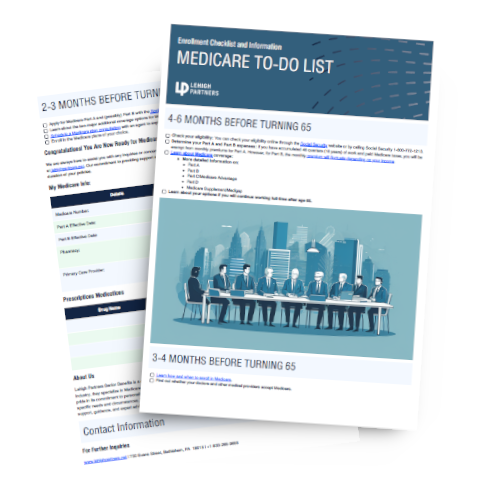Half of all people with glaucoma are unknowingly living with the condition. However, early detection and treatment can prevent serious vision loss.
Medicare provides coverage for a glaucoma screening once every 12 months if you are at a high risk of developing the disease.

Medicare covers glaucoma screenings for individuals at high risk of glaucoma, with costs covered every 12 months, emphasizing the importance of early detection to prevent vision loss
Glaucoma encompasses various diseases that harm the optic nerve, potentially leading to vision loss or blindness. Some forms of glaucoma may not exhibit symptoms, meaning you can have the condition without experiencing vision problems or pain.
You fall into the high-risk category for glaucoma if you meet any of the following criteria:
- You have diabetes
- You have a family history of glaucoma
- You are African American and aged 50 or older
- You are Hispanic and aged 65 or older
If you suspect you are at high risk, it is important to consult with your doctor and ensure that you are up to date with your glaucoma screening. Medicare Part B (Medical Insurance) includes coverage for glaucoma screenings once every 12 months for those at high risk. After meeting the Part B deductible, you will be responsible for paying 20% of the Medicare-approved amount for the screening. In a hospital outpatient setting, a copayment may also apply.
Remember, your glaucoma screening must be conducted or supervised by an eye doctor who is legally authorized to perform such tests in your state.
Stand-Alone Vision Coverage: Enhancing Your Medicare Benefits
While Medicare provides comprehensive health coverage for seniors, it does not include routine vision care. As a result, many individuals seek additional vision coverage to ensure their eye health needs are met. Stand-alone vision coverage plans can be a valuable addition to your Medicare benefits, offering coverage for eye exams, prescription glasses or contact lenses, and other vision-related expenses. Read on to discover the benefits of stand-alone vision coverage and how it can enhance your Medicare benefits.
Understanding the Gap in Medicare Coverage for Vision Care
Original Medicare (Part A and Part B) primarily covers medically necessary services and treatments but does not routinely cover vision care, such as eye exams, eyeglasses, or contact lenses. This can leave Medicare beneficiaries responsible for the full cost of routine vision care, which can add up significantly over time.
Maintaining good eye health is vital, especially as we age. Regular eye exams can help detect early signs of common eye conditions like cataracts, glaucoma, or macular degeneration. Without proper vision care, these conditions can progress undetected, leading to more severe problems and potential vision loss.
Benefits of Stand-Alone Vision Coverage
Stand-alone vision coverage acts as a supplemental insurance option specifically tailored to cover routine vision care expenses not covered by Medicare. Here are some key benefits of having stand-alone vision coverage:
- Eye Exams and Preventive Care Coverage: Stand-alone vision plans typically cover comprehensive eye exams, enabling you to schedule routine check-ups and maintain optimal eye health. Regular eye exams can help identify any potential vision problems and allow for early treatment, helping to prevent serious complications or vision loss.
- Coverage for Eyeglasses or Contact Lenses: Vision coverage often includes benefits for prescription eyeglasses or contact lenses. This can help reduce out-of-pocket expenses associated with purchasing eye corrective devices, improving affordability and accessibility for individuals who rely on visual aids.
- Discounts on Additional Vision Services: Many stand-alone vision plans provide discounts on additional vision services beyond routine eye exams and corrective eyewear. These may include discounts on vision correction surgeries, such as LASIK or cataract surgery, or discounts on specialized lenses or frames.
- Expanded Provider Network: Stand-alone vision plans typically come with an extensive network of eye care providers, including optometrists, ophthalmologists, and optical retail locations. This expanded network allows you to choose from a variety of professionals and facilities, ensuring access to high-quality eye care services.
How Stand-Alone Vision Coverage Works with Medicare
Stand-alone vision coverage can be purchased separately from private insurance companies. These plans often come with affordable premiums and a range of coverage options, allowing you to select the level of coverage that best suits your needs.
It's important to note that stand-alone vision coverage works independently of Medicare. To benefit from vision care coverage, you'll need to present your vision insurance card when visiting an eye care provider. Your vision provider will then bill your insurance company directly for covered services, significantly reducing your out-of-pocket expenses.
Choosing the Right Stand-Alone Vision Coverage Plan
When selecting a stand-alone vision coverage plan to complement your Medicare benefits, consider the following factors:
- Coverage Details: Review the coverage options and benefits offered by different vision plans. Ensure the plan includes coverage for necessary services like eye exams, corrective eyewear, and any other specific needs you may have.
- Provider Network: Research the network of eye care providers associated with each plan. Verify that the providers you prefer are included in the network and ensure their locations are convenient to you.
- Costs and Premiums: Compare the premiums and out-of-pocket expenses associated with different plans. Consider your budget and the value you receive from each plan to make an informed decision.
- Additional Benefits: Some vision plans offer extra benefits such as discounts on laser eye surgery or other specialized services. Evaluate these additional benefits and assess their importance to you.
- Flexibility: Consider the flexibility of the plan, such as the ability to add dependents or change providers, if needed.
Finding the Right Stand-Alone Vision Coverage Plan
Navigating through various stand-alone vision coverage options can be overwhelming. That's where Lehigh Partners Senior Benefits can assist you. With our expertise and dedication to providing exceptional service, we can help you find and select the right vision coverage plan to complement your Medicare benefits. We understand the importance of comprehensive eye care and strive to ensure you have access to the services you need.
Contact Lehigh Partners Senior Benefits today at 833-265-9655 to discuss your stand-alone vision coverage needs. Our knowledgeable team is standing by to answer any questions you may have and assist you in finding the perfect vision coverage plan for your requirements.
Don't miss out on the benefits of stand-alone vision coverage. Enhance your Medicare benefits and prioritize your eye health. Don't put off routine vision care and risk potential complications or vision loss. Invest in stand-alone vision coverage and enjoy peace of mind knowing that your eye health is well taken care of.

